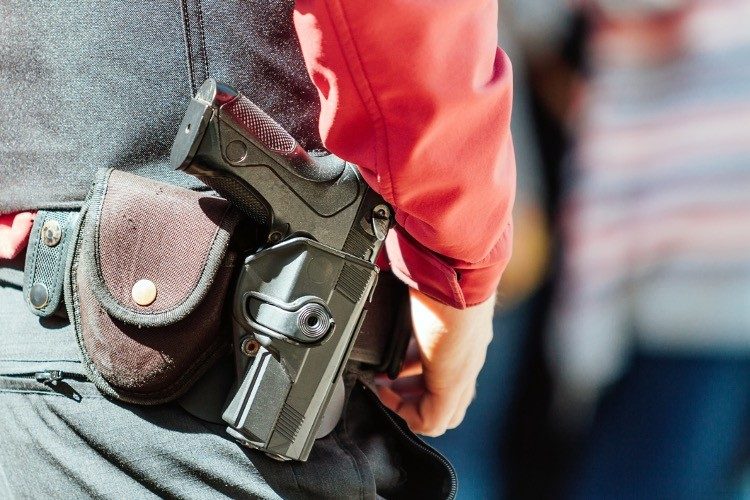
Indiana’s General Assembly is likely to pass “constitutional carry” legislation this week, perhaps as soon as today, making it the 23rd state to do so once Republican Governor Eric Holcomb signs it into law.
The law would allow any Hoosier aged 18 and older to carry a firearm without first having to obtain government permission. It’s called “constitutional” as it reflects the Second Amendment guarantee that exercising such a right may not be “infringed” by government.
The bill’s author, Representative Ben Smaltz, said his bill “levels the playing field” by allowing the state’s citizens to carry openly or concealed, adding:
House Bill 1077 gets us to a place where the law-abiding citizen is not required to go through a process of asking permission, submitting to government investigation, supplying their fingerprints to enjoy a right that is constitutional at the federal level and constitutional at the state level.
On March 5, the Georgia Senate passed a similar bill, removing the need for Georgians to obtain a permit before being able to carry a firearm in public.
Alabama’s Senate Judiciary Committee approved a bill last week that would grant the state’s citizens the freedom to carry a firearm without first obtaining permission. It now heads to the full Senate for approval and then on to Governor Kay Ivey’s desk for her signature.
On March 3, Ohio’s General Assembly overwhelmingly passed a bill eliminating the need for Ohioans to get a concealed-carry permit — the House by 57-35, and the Senate by 24-8. That bill now heads to Governor Mike DeWine for signing into law.
The momentum is all in favor of such legislation. Vermont has never had any such requirements thanks to its carefully worded Constitution. A synonym for “constitutional carry” is “Vermont carry.”
In 2003, Alaska Governor Frank Murkowski signed a constitutional carry bill into law; Arizona followed suit in 2010. Wyoming passed similar legislation in 2011, followed by Maine and Kansas in 2015. Four more states passed constitutional carry laws in 2016: West Virginia, Idaho, Mississippi, and Missouri. New Hampshire and North Dakota joined the lengthening list of states removing the permission requirement in 2017, while South Dakota, Oklahoma, and Kentucky followed suit in 2019.
Arkansas joined the constitutional-carry crowd in 2020, followed by Utah, Montana, Iowa, Tennessee, and Texas in 2021.
CNN took note of the accelerating move toward constitutional carry, noting that similar legislation is now pending in Wisconsin, South Carolina, and Nebraska. Michigan and Louisiana are also lining up behind the move toward permitless carry. CNN complained that such a law somehow “protects criminals,” claiming further that such freedom will lead to a rise in violent gun-related crime.
Not so, wrote John Lott, president of the Crime Prevention Research Center. In fact, those carrying firearms are much less likely to be convicted of a gun-related crime than even police — 12 times less likely, in fact:
Permit holders nationwide are incredibly law-abiding. Police officers are extremely rarely convicted of firearms-related violations, but it still happens, at a rate twelve times more often than for permit holders.
The case for constitutional carry is persuasive:
The people who benefit the most are those who live in high-crime urban areas;
None of the states which have passed constitutional carry laws have reconsidered them, or even held a single hearing questioning the decision;
The citizens resisting tyranny in Ukraine provide unassailable evidence of the efficacy of the private ownership of firearms; and
Where firearms are prevalent violent crime predictably and consistently declines.
The Second Amendment is overcoming its status as a “second-class” right. Next on the agenda must be repeal of the oppressive Gun Control Act of 1968 and then the National Firearms Act of 1934.



